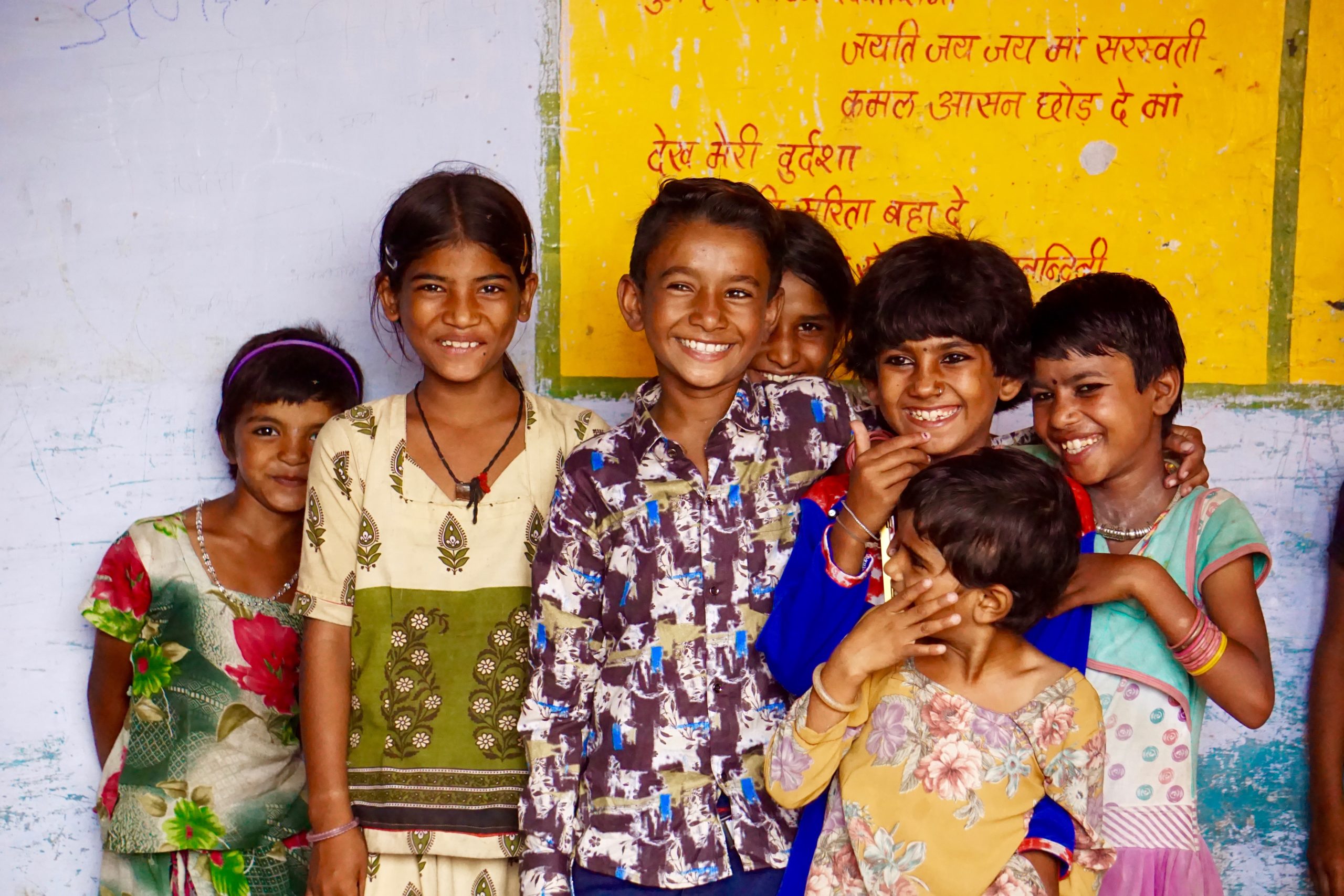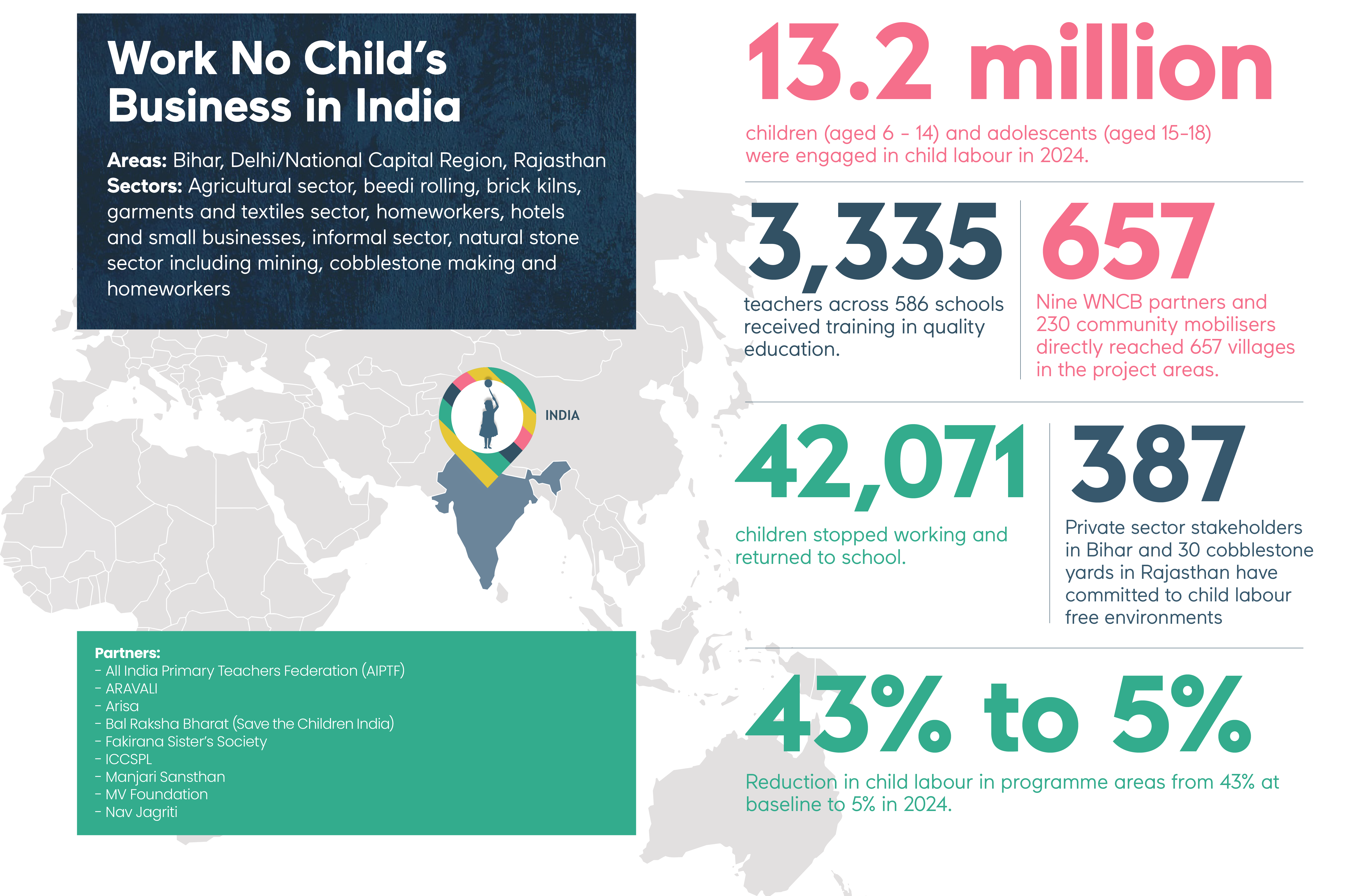
Child labour in India
In India, 13.2 million children (aged 6 – 14) and adolescents (aged 15-18) were engaged in child labour in 2024, representing 4% of all children and adolescents in this age group
In Bihar, child labour is found in sectors such as agriculture and in small businesses such as restaurants, farms, hotels and shops.
In Rajasthan, children work mainly in the natural stone industry. The state’s abundance of mineral resources continues to drive children into hazardous occupations, particularly in cobble yards and homeworking, posing significant risks to their health and well-being.
The main source of child labour in Delhi and National Capital Region is home labour in the garment industry.
How we measure our results
- Key Performance Indicator studies (3x) during the baseline, mid-term and endline. In total, this included household surveys with over 7,030 respondents, 498 interviews and 85 focus group discussions in India.
- SenseMaker studies (3x) during the baseline, mid-term and endline to measure norms change in communities in which 309 adults and 613 children participated in India
- Gender analysis to develop gender sensitive and transformative interventions
- Annual Outcome Harvesting to reflect on our interventions and contributions to change
- External mid-term review and final evaluation
- Specific national and local studies on child labour impact
Impact summary
In India, the programme has had an impressive reach an impact. Partners were present in 3 states, 18 districts, 20 blocks, 12 urban wards, 118 gram panchayats and 657 villages.
The programme has achieved a significant overall reduction in the number of children engaged in (child labour * in the programme areas, from 43% at baseline to 5% in 2024.
Although the prevalence of child labour decreased for all age groups, boys had consistently higher rates of involvement in child labour than girls. This is due to social norms that see men and boys as breadwinners and disregard the work of girls and women.
Stories of change
Community mobilisation as a key strategy to change norms
Linking communities in India with international stone companies in Europe
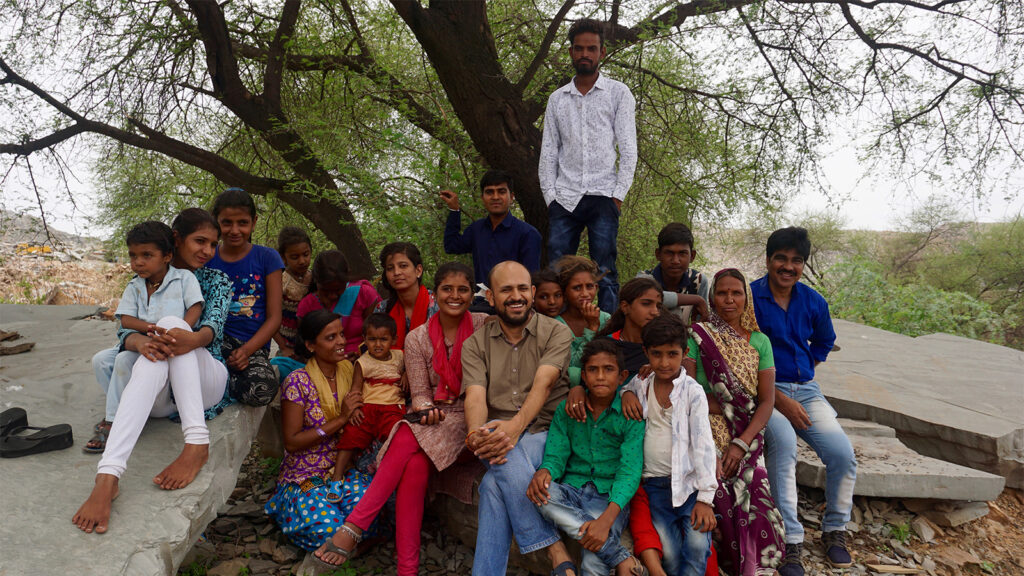
Community mobilisers have played a crucial role in the implementation of the WNCB programme’s strategy to eliminate child labour. Community mobilisers are key people in the work we have done at the community level; they have been our helpers and our heart at the same time. Through community mobilisation, the community takes ownership and institutions are sensitised. All the efforts of community mobilisation have culminated in the creation of local institutions that have taken up the issue of protecting children’s rights.
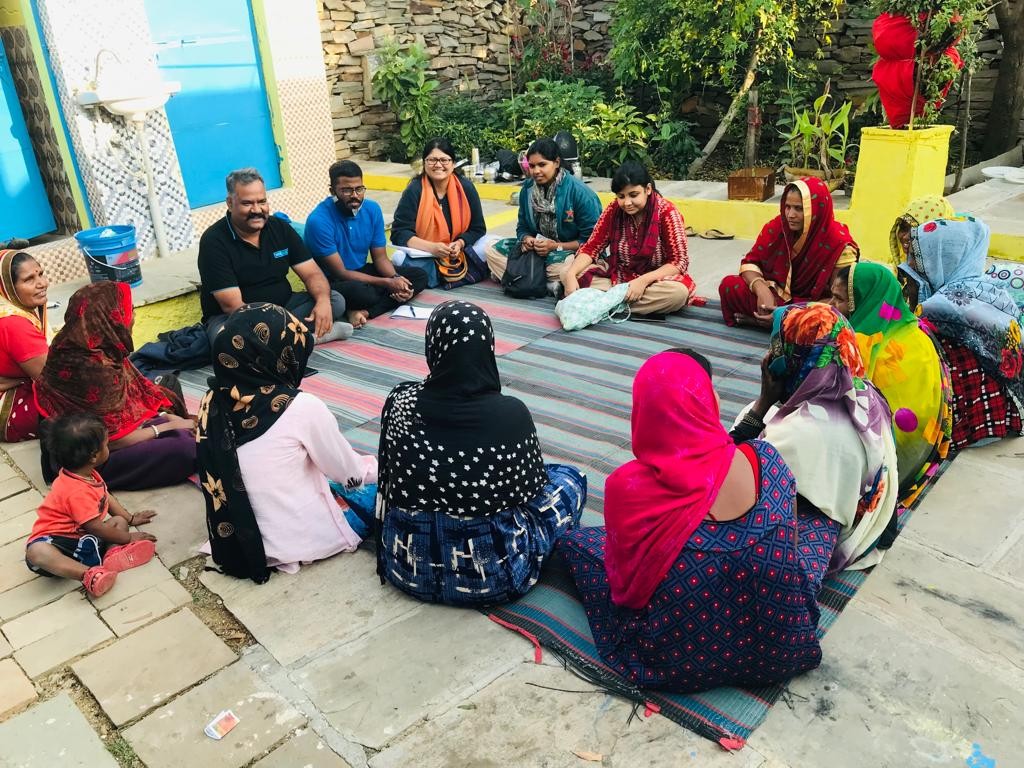
Rajasthan is a major source of natural stone, including for export to Europe. The town of Budhpura and the surrounding hamlets in the Bundi district are renowned for the extraction of high quality sandstone. The district also produces and exports large quantities of cobblestones.
This case study shows how WNCB partners – the Indian NGO Manjari and the semi-governmental organisation ARAVALI – worked with the community, the government and the stone sector in Budhpura and surrounding hamlets to eliminate child labour and improve working conditions for adults in the cobblestone yards and mines. Together with Arisa, they linked their activities with international companies and advocated for responsible business practices.
This is a story about the steps, challenges and successes on the road to eliminating child labour and improving working conditions.


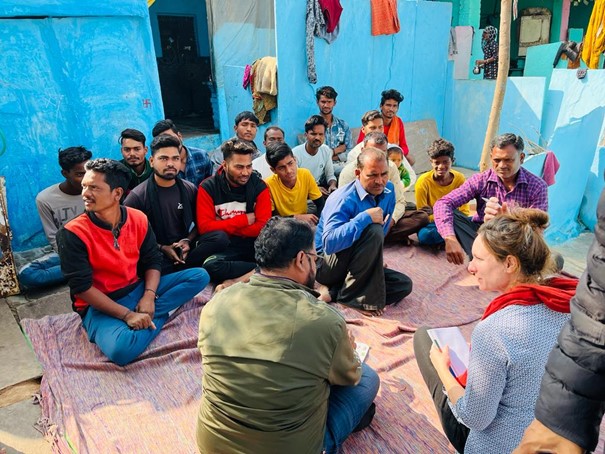
Achievements

Communities
The dropout rate for boys in the final year of primary school has fallen to 1 per cent
Communities in 657 villages in Rajasthan, Delhi/National Capital Region and Bihar were reached directly through the work of 9 WNCB partners and over 230 community mobilisers. All of these community mobilisation efforts have culminated in the creation of local institutions working to protect children’s rights. Read more about community mobilisation in India.
Through various (child-led) campaigns, community meetings, home visits, livelihood support and more, 2,422 households in Rajasthan, 1,411 households in Delhi/National Capital Region and 114,379 households in Bihar were (indirectly) reached by WNCB’s efforts to eradicate and prevent child labour in communities. During the programme, 322 wards and 10 panchayats in Bihar were made Child Labour Free Zones, and 30 local businesses in Rajasthan (cobblestone stockyards) stopped employing children.
A total of 91 Child Protection Committees were formed and 11,456 community members including Panchayat, CPC, Youth, CRPF, Jeevika groups have been trained to raise, discuss and resolve issues related to children’s rights in Bihar. In addition, 8 District Task Forces became operational in the intervention area of Bihar and Rajasthan.

Schools
118,212 households were (indirectly) reached by WNCB’s efforts in India
Overall, school enrolment and attendance of children aged 5-17 in the target areas improved significantly over the project period. By 2024, 54 percent of these children were enrolled and attending school. Among the states where the WNCB programme was implemented, Rajasthan had 75 per cent of children enrolled and attending school, followed by Delhi with 62 per cent of children enrolled and attending school. Enrolment in Bihar ranged from 51 to 55 per cent. However, it remains challenging to keep children above 14 years old in school.
In 586 schools, we trained 3335 teachers in quality education, built the capacity of community-based organisations, set up bridging course modules, and engaged community mobilisers to raise awareness and provide support to get children into classrooms.
By the end of the programme in 2024, 11% of children, or 42,071 children, had stopped work activities including beedi making (174 children stopped beedi rolling in Bettiah, Bihar), mining and garment making and were (re-)enrolled in government schools The dropout rate for boys in the final year of primary school has fallen to 1 per cent. This represents significant progress in keeping children in school and out of work. For girls, the rate remains higher at around 4 per cent, suggesting that continued efforts are needed to address the specific challenges girls face in completing primary school.
Here you can read more on Gender equality and social inclusion – Work: No Child’s Business

Economic Strengthening
In Bihar, livelihood programmes and skills training have supported 11,611 parents to create new work opportunities
Self-consumption and income-generating activities
The programme has successfully driven change, with 10 per cent of households/families developing new self-consumption and/or income-generating activities. Community mobilisers have researched and introduced appropriate and sustainable decent work opportunities to parents and adults in their community.
In Bihar, one of India’s poorest states, the work of community mobilisers has helped to identify and create new livelihood opportunities for parents. Livelihood programmes and skills training have supported 11,611 parents to create new work opportunities. In Rajasthan, 32 families have been supported in developing and strengthening self-consumption or income-generating activities, while in Bihar, at least 325 women farmers are now engaged in vegetable production and 280 households in goat rearing. Children are not involved in any of these activities. Our partners’ efforts have resulted in a change in Bihar, where parents have taken up new jobs in agriculture, running shops and rearing livestock.
Economic empowerment of women
Women have achieved economic empowerment and development through the 20 Self Help Groups (SHGs) set up by WNCB in Rajasthan. One of the ways the SHGs are used is to collectively save money each month to create a fund for emergencies. The money can also be used for education. The SHGs are particularly helpful as there are no formal banks or savings facilities in Budhpura. A financial literacy awareness campaign organised by WNCB partners reached around 7,000 people in 13 villages/habitations.
Over 300 mining workers now have employment cards, giving access to pension schemes and more
Access to government programmes
In Bihar, more than 3,523 families are now connected to government programmes and services, giving them better access to social security benefits. In Rajasthan, more than 300 mining workers have been helped to obtain e-Shramik cards (employment cards). These workers now have access to pension schemes, as well as life and accident insurance.
Families have also been helped to obtain proper documentation such as Aadhaar cards (unique identity numbers) and other documents required for various schemes, including access to benefits under the National Employment Guarantee Scheme, public distribution systems and social security. In Budhpura, for example, mine and quarry workers now have access to benefits under the Rajasthan Silicosis Policy.
Opportunities for young adults
22% of young adults aged 18-24 are now in decent employment, including apprenticeships or internships, compared to baseline data. These young people have received skills training in computer work, sewing, beauty and decent working conditions, among others. In Bihar and Delhi alone, 749 young people have already participated in these training programmes.

Private Sector Collaboration
30 Cobblestone yards have committed to child labour free environments
In Bihar, over 387 private sector actors have taken responsibility for preventing child labour and have zero tolerance for these practices in their workplaces. In Rajasthan, 30 cobblestone yards have committed to child labour free environments and the Budhpura Cobblestone Yard Owners’ Association is actively preventing and monitoring these practices.
Multi-stakeholder collaboration
The partners in Rajasthan have forged strong partnerships with national and international stakeholders in the natural stone supply chain. Their involvement in the TruStone initiative has created a robust platform for multi-stakeholder dialogue to ensure responsible business practices by companies at all levels of the supply chain. For example, support for the formation of collectives has empowered 250 women to collectively bargain for fair wages and safe working conditions. Similarly, the training of 12 cobble yard owners, with a focus on improving working conditions, has led to sustainable change.
250 Women are empowered to collectively bargain for fair wages and safe working conditions
Guidelines for responsible business conduct for the garment sector
In India, we have made an impact at local, regional and international levels. In collaboration with the Indian Ministry of Corporate Affairs (through IICA), WNCB partners participated in the advisory committee and published national guidelines for responsible business conduct specific to the garment sector. A total of seven studies were conducted by WNCB partners in India, including on workplace discrimination in the natural stone sector and livelihoods.

Governments
Eight Task Forces on Child Labour have been formed at the district level
At the national level, WNCB partners worked with parliamentarians to raise issues of social protection, school enrolment and quality of education. Many meetings were organised through the Multi Stakeholder Forum on Child Labour, led by Bal Raksha Bharat, and the Sustainability Forum on Natural Stone, coordinated by ARAVALI.
These meetings targeted various stakeholders, including Rajasthan State Chambers of Commerce, NGOs, WNCB partners and government departments, to promote responsible business, child labour free products and other related agendas. A total of twelve multi-stakeholder events on child labour were organised to promote responsible business practices.
At the state level, WNCB partners supported the adoption of five policies in favor of safe working conditions, education and prevention of child labour. WNCB partners developed guidelines for child-friendly villages, which were adopted by the Rajasthan government for wider replication in the state.
WNCB partners developed child-friendly village guidelines, adopted by the Rajasthan government
At the district level, eight Task Forces on Child Labour have been formed to strengthen and guide government institutions. In Rajasthan, WNCB partners made recommendations to the DTF on the area-based approach and the supply chain approach, and it is imperative that these recommendations find a place in district plans and budgets.
New state and local policies for education, child safety and more
Rajasthan’s state government adopted a child labour-free procurement policy. In Bundi district, the government ensured the implementation of occupational health and safety measures in the sandstone mines in procurement contracts.
The state of Bihar initiated a state policy on remedial education for slow learners. A new education-focused policy in Rajasthan is now facilitating the establishment of libraries across the state to encourage children to aspire, dream and learn, and to provide a safe place for children to learn. In Bihar, the Director of Social Welfare, Government of Bihar, who is also the Vice-Chairperson of the State Child Protection Committee, issued a letter to the District Child Protection Units to involve NGOs in strengthening the Child Protection Committees in Bihar to address issues of child labour and child marriage.
At the panchayat level in Bihar and Rajasthan, WNCB partners organised 70 training sessions for elected representatives of the Panchayat Raj at various levels and established 39 child-friendly panchayats. The government accepted and adopted a guidebook on the principles of the Area Based Approach for the establishment of Child Friendly Panchayats.


